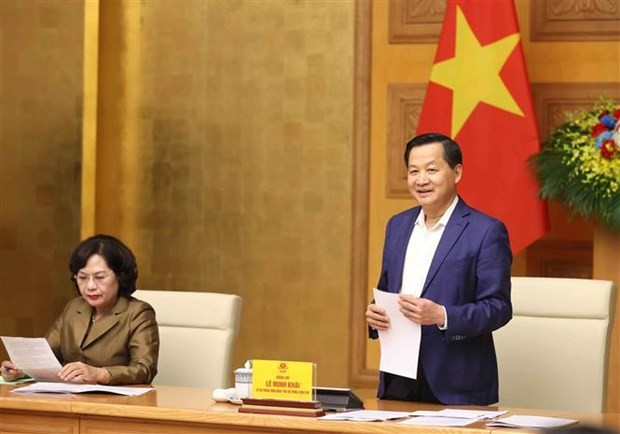
Breakthrough policies needed to ensure sustainable development
Latest
 |
| Deputy Prime Minister Le Minh Khai (standing) speaks at the meeting of the National Financial and Monetary Policy Advisory Council. (Source: VNA) |
They held that the monetary and fiscal policies employed over the past time have helped achieve set objectives and enabled the national economy to withstand shocks that seemed to be insurmountable.
The economy, however, is expected to face quite a few difficulties in the time ahead, which calls for breakthrough policies, especially those that would fully tap resources, boost consumption and private investment, and manage the gold market, to ensure stable development, the experts noted.
Economist Le Xuan Nghia pointed to the weak recovery of the economy, especially demand, and the strong reduction in investment by the private sector. He suggested budget incentives for businesses and the utilisation of fiscal policies to serve economic recovery in the time ahead.
The participating experts also voiced approval for the proposal to abolish the State monopoly on gold bars, and grant licences to businesses eligible for the production.
Deputy Governor of the State Bank of Vietnam (SBV) Pham Thanh Ha briefed the participants on the central bank’s efforts to manage monetary policies and banking operations, saying it is implementing credit programmes and policies for prioritised fields and driving forces, such as the 12 trillion VND (484.21 million USD) credit package.
He underlined the problems facing the economy, particularly unfavourable developments and unpredictable prospects of the world economy, rising bad debts and low mobilisation of middle- and long-term capital of credit organisations.
Deputy Prime Minister Le Minh Khai, who is also chairman of the council, pointed to challenges like the pressure of the US dollar appreciation trend on Vietnam’s foreign exchange market, and weak capital absorption by businesses and people, along with difficulties in the real estate market.
Against the backdrop, he suggested prioritising the use of fiscal policies, spurring public investment, supporting trade promotion, and expanding the market, with the support of monetary policies.

























